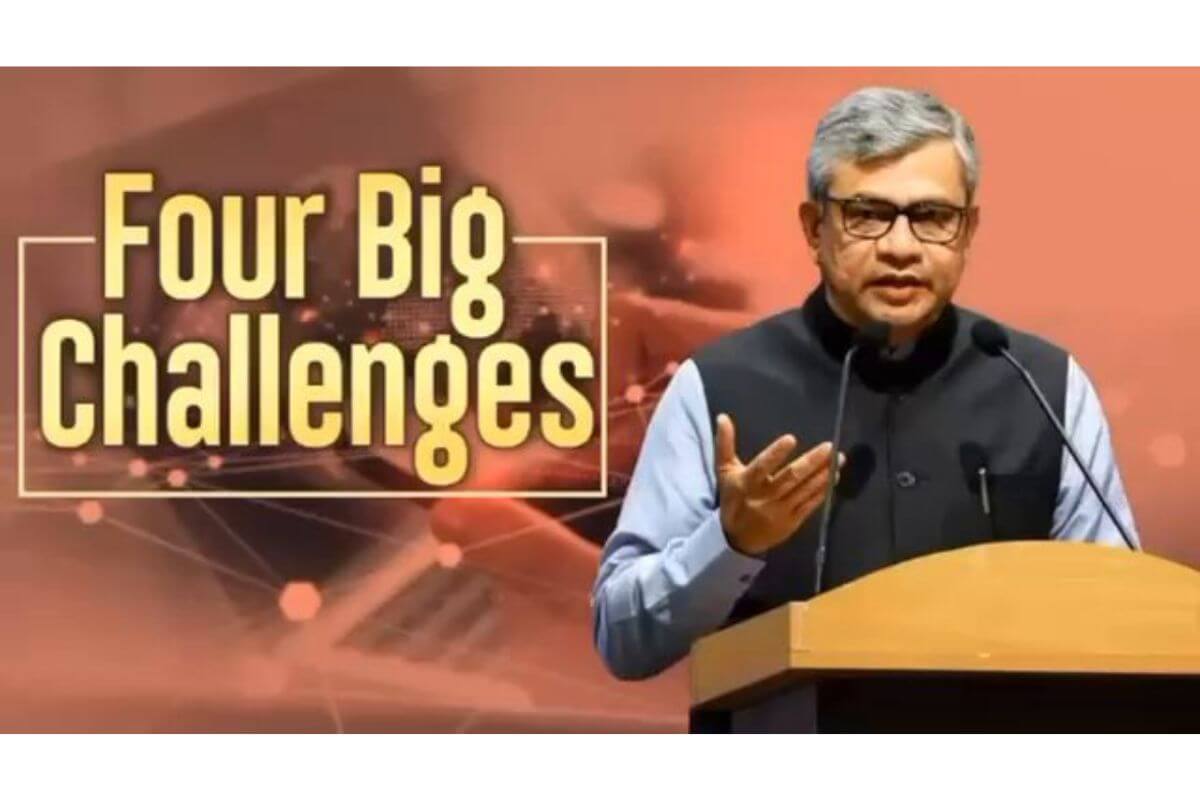

Union Minister of Data and Broadcasting Ashwini Vaishnaw referred to as for accountability in Digital Media to fight pretend information and safeguard democracy. He delivered the keynote handle just about, highlighting India’s vibrant media ecosystem and the challenges confronted by the sector throughout the Nationwide Press Day 2024 celebrations on Saturday on the Nationwide Media Centre in New Delhi organised by the Press Council of India.
Additionally Learn: India Leads in AI Adoption, Outpacing International Common, Says BCG Report
Vaishnaw identified that India’s media ecosystem contains 35,000 registered newspapers, quite a few information channels, and a sturdy digital infrastructure. He famous that investments in 4G and 5G networks have propelled India to the forefront of digital connectivity, with the bottom information costs globally.
Nevertheless, Vaishnaw additionally raised issues about 4 key challenges that society is dealing with as a result of altering panorama of media and press:
1. Faux Information and Disinformation
The Minister questioned the relevance of Secure Harbor provisions for digital platforms, stressing the necessity for a brand new framework to curb misinformation and guarantee accountability.
The unfold of pretend information undermines belief within the media and poses a menace to democracy. Throughout his handle, Ashwini Vaishnaw raised a essential query on the fast progress of digital media and the accountability for the content material printed on these platforms. The idea of Secure Harbor, developed within the Nineteen Nineties when the provision of digital media was restricted to pick customers in universities and analysis institutes, supplied immunity to platforms from being held accountable for user-generated content material.
He talked about that globally, debates are intensifying over whether or not the Secure Harbor provisions are nonetheless acceptable, given their function in enabling the unfold of misinformation, riots, and even acts of terrorism. “Should not platforms working in a context as advanced as India undertake a special set of duties? These urgent questions underline the necessity for a brand new framework that ensures accountability and safeguards the social cloth of the nation,” he added.
Additionally Learn: AI-Pushed Transformation to Add 33.9 Million Jobs to India’s Workforce by 2028: Report
2. Honest Compensation for Content material Creators
Vaishnaw highlighted the monetary pressure on conventional media as a consequence of digital platforms’ dominance, urging honest compensation for standard media creators.
The shift from conventional to digital media has financially impacted standard media, which invests closely in journalistic integrity and editorial processes. Vaishnaw emphasised the necessity for honest compensation for conventional content material creators, addressing the asymmetry in bargaining energy between digital platforms and standard media. “The efforts made by the standard media in creating content material must be pretty and suitably compensated,” he mentioned, in response to the Ministry of Data and Broadcasting.
Additionally Learn: Everybody in India Can Ask AI Assistants Questions About Well being Points, Says Meta Official: Report
3. Algorithmic Bias
He warned towards the social affect of algorithms prioritising sensational or divisive content material, calling for platforms to deal with biases, particularly in India’s various society.
Algorithms driving digital platforms prioritise content material that maximises engagement, incites robust reactions and thereby defines the income for the platform. These usually amplify sensational or divisive narratives. Vaishnaw highlighted the social penalties of such biases, significantly in a various nation like India, and referred to as on platforms to give you options that account for the affect their programs have on our society.
Additionally Learn: Microsoft Says AI Demand Continues to Exceed Its Obtainable Capability
4. Affect of AI on Mental Property
Vaishnaw raised issues over AI programs utilizing creators’ work with out correct recognition or compensation, calling it each an moral and financial challenge.
The rise of AI presents moral and financial challenges for creators whose work is used to coach AI fashions. The Union Minister highlighted the numerous upheaval the inventive world is dealing with as a consequence of developments in synthetic intelligence. Addressing the challenges posed by AI programs, he emphasised the necessity to safeguard the mental property (IP) rights of unique creators. “AI fashions at the moment can generate inventive content material primarily based on huge datasets they’re skilled on. However what occurs to the rights and recognition of the unique creators who contributed to that information? Are they being compensated or acknowledged for his or her work?” the Minister questioned. “This isn’t simply an financial challenge, it’s an moral challenge too”, he added, in response to the MIB.
In closing, the Minister emphasised the significance of preserving the media’s function in democracy and urged collaborative efforts to deal with these challenges and work towards a Viksit Bharat by 2047.